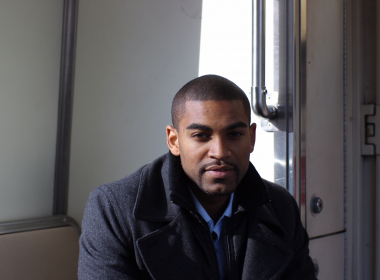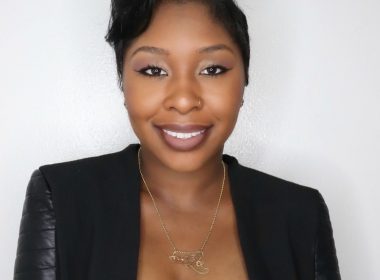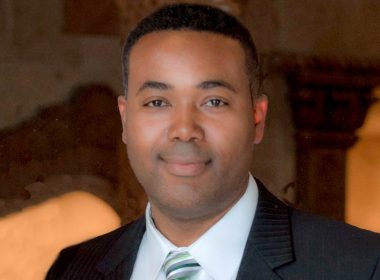
Former adviser to President Barack Obama and CNN political commentator, Van Jones cracked the whip at the 2016 HOPE Global Forums during the opening reception which was held at the Marriott Marquis in Atlanta on Wednesday, January 13, 2016. The Yale-educated attorney captivated the standing-room only crowd when he conveyed his perspective on the plight of Black men.
“When you say Black men, and the branding issue, what automatically comes to mind is not what they say but what I’ve seen us do. Talking about the future, I had a chance to work for a guy named Barack Obama,” begins the author of two New York Times best-selling books, The Green Collar Economy (2008) and Rebuild the Dream (2012).
“I don’t believe in lowering standards for Black people. I don’t believe in grading on a curve. My father was no joke. Any complaint we had about racism at my school, my dad would ask, ‘Did they put some dogs on you? Well go get your lesson.’ My dad said, ‘No excuses, just excellence.’ He didn’t want to hear it. When my father died, the picture that was on his funeral program was him standing in front of Yale Law School the year I graduated. I don’t lower my standards for anybody,” says the man who wears many hats: an environmental and human rights activist, a White House policy adviser, who helped to lead the inter-agency process that oversaw the multibillion-dollar investment in skills training and jobs development within the environmental and green energy sectors, among other titles like serial social entrepreneur.
Jones was joined on the panel by HOPE founder John Hope Bryant, Ben Jealous, and Atlanta mayor Kasim Reed to discuss “The Aspirational Future of Black Men in America;” and it was moderated by Lisa Borders.
Read what else Jones has to say.
To civil rights activist C.T. Vivian …
“Twenty-six years and two weeks ago, you came to Fisk University, Feb. 1, 1990. I had [activist] friends who attended Fisk. They were celebrating the 30th anniversary of the Sit-In Movement. I was a student journalist covering the demonstration. To this day, I can almost quote your speech. You said, ‘If you don’t fight for what you want, you deserve what you get. Stay nonviolent. Anything your enemy does to you, if you stay nonviolent, will not destroy you. It will develop you. I became an activist that day,” shares Jones with a rousing applause as his soundtrack.
“You have affected so many people with your moral ethics. We went out and bought a VHS of Eyes on the Prize. The seven people who watched that video are today either PhDs, elected officials or running businesses all because of your vision. That was just one afternoon. Thank you, you deserve a round of applause.”
What are the trends for the future? Where will Black men be left out? What can we do to ensure Black men are in included. We have a lot of Black men in prison. We have a lot of Black men not reaching their full potential. What are the trends and what can we do?
“A chess board has four corners. We only played in one corner for so many years. The DC corner, the political corner, the democracy corner from ’63, the March on Washington, a young preacher asked a President to act. To 2008, a young Black man being the President. We now have that corner. Thurgood Marshall on the Supreme Court worked to get that corner to act right for us. When I got to the White House, we had 60 votes in the Senate. [Nancy] Pelosi running the House. We had President Obama and Michelle Obama at the height of their global power and fame. People were crying for him all around the world. We had that corner but still got beat. Here’s why. There’s Wall Street, finance … not the democracy but the plutocracy. There’s Silicon Valley … the technocracy. They are now writing the future and law not Washington, D.C. The future is in code in Silicon Valley right now and you don’t see many of us there. Fourth corner … Hollywood, media. Distract and divide. You can be the star; you don’t own the studio. You’re a YouTuber, you’re a pixel on somebody else’s platform.
“What Black men have to do and what we have to do for Black men … they say that behind the mountain is another mountain. Behind the mountain is three more mountains. That requires a completely different perception of Black leadership, male and female, and our allies. When you are just trying to get one corner of the chess board, you can have the one heroic Black, heterosexual male champion. To lead the march, to file the lawsuit [and] to run for office … you can have all that stuff. You put up with a lot of nonsense because there’s something about politics that keep you focused on the one. You can’t do business as one. You can’t build an app as one. You can’t change the global story and conversation as one. It’s about a network. It’s about a different model of leadership. What I love so much about John Hope Bryant because he was so far ahead of the curve in understanding and talking about silver rights. It’s a breakthrough, a leadership paradigm. We are in the middle of multiple scientific revolutions happening at the same time and we are absent. Biotech, absent. Drones, absent. Virtual reality, absent. Augmented reality, absent.
“Every existing business model will be under tremendous siege. Empires will rise and fall. We can leapfrog them.
“We don’t have to cry and protest businesses that are going to be disrupted. Hollywood is being eaten by Silicon Valley. Netflix and YouTube [are] wiping out studios. Why should we just be content providers on somebody else’s platform. Why can’t we be the builders and the owners. I have no doubt whatsoever that young African American men and women who are creating. A digital economy is made up of five parts: creativity, communication, connectivity … we do in our sleep. The problem is we don’t do the coding [technology] and the cash [finance]. So now you are a cotton picker on a digital plantation. You are downloading and swiping, making money for somebody else. The future is simply this, our children need to be told when you are a downloader, you are making money for somebody you don’t know. Our children deserve to be uploaders.”
On Obama’s legacy and record ….
“I want to hold this president to a fair standard. Mitt Romney in 2012 ran against this president. He said, Obama is terrible. ‘If you elect me, I will get you 6 percent unemployment.’ We have 5 percent unemployment right now. Newt Gingrich, my friend actually, he said, Obama is terrible. ‘If you elect me I will give you 3 dollar gas.’ We have 2 dollar gas right now. The tea party said Obama is terrible. ‘The deficit is out of control.’ There’s a 75 percent reduction of the deficit right now. [Rick] Santorum said immigration is out of control.’ For better or for worse, today … right now we have net negative immigration from Mexico. In other words, more Mexicans are leaving than coming. I don’t think it’s a good thing.
“By your standards, this is the best president possible … you couldn’t imagine a better president. What your nominee said, my president did and did it better. But you [don’t] respect him. I know that Obama, who has outperformed every measure they had for their best, isn’t being respected. I am less mad at Pookie and ’em on the corner. I also learned something. Obama’s power as president will always be second to his power at precedent, being willing to step up into a role, into a position, into a crisis and lead anyway, and achieve anyway, and accomplish anyway, no matter what they said.”
















